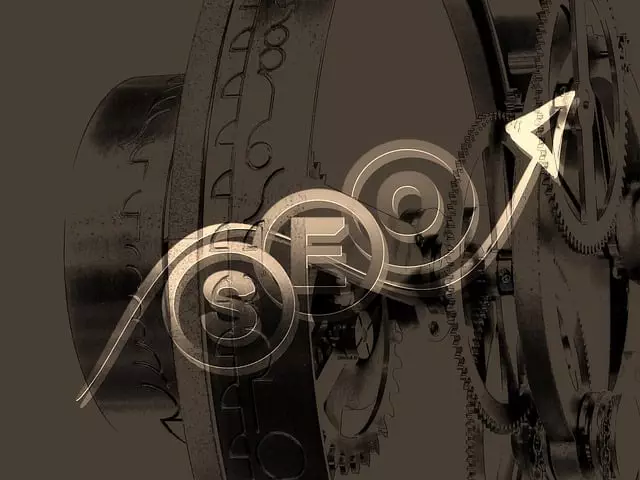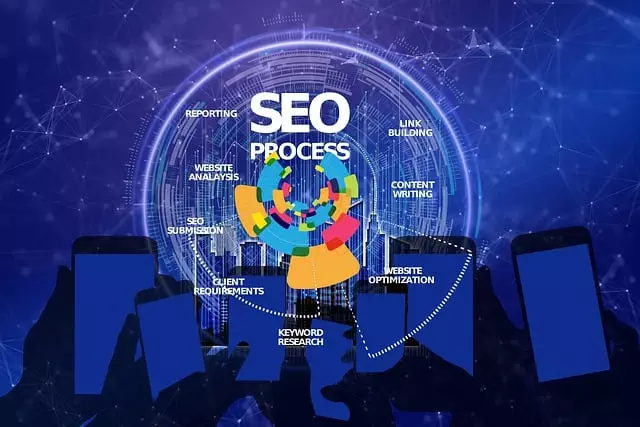An SEO Agency for E-commerce Websites plays a pivotal role in optimizing online stores, driving sales, and enhancing user experience. They offer multi-faceted services including keyword research, on-page optimization, content strategies, technical audits, and performance monitoring. By integrating targeted keywords into content, optimizing visual elements, improving site speed, leveraging user-generated content, and implementing advanced SEO strategies like semantic search and voice search integration, these agencies help e-commerce businesses gain online visibility, attract targeted traffic, and achieve significant growth in the competitive digital marketplace.
In today’s digital era, an optimized e-commerce website is crucial for business success. This comprehensive guide delves into the essential strategies that drive online sales growth. From understanding the pivotal role of SEO agencies in enhancing visibility to leveraging advanced techniques like on-page optimization and compelling product descriptions, each element contributes to a seamless user experience. Discover how visual elements, site navigation, speed, mobile responsiveness, reviews, and long-term SEO strategies can elevate your e-commerce website, making it a powerhouse with the help of a specialized SEO agency for e-commerce websites.
Understanding E-commerce Website Optimization: The Role of SEO Agencies

E-commerce website optimization is a multifaceted process that involves enhancing online stores to boost sales and customer engagement. It goes beyond merely creating an attractive site; it’s about ensuring search engines can easily index your products, improving user experience for seamless navigation and purchases, and leveraging data analytics to inform strategic decisions. This is where an SEO agency for e-commerce websites plays a pivotal role.
SEO agencies specialize in understanding the intricate algorithms of search engine rankings and applying best practices tailored to e-commerce platforms. They offer valuable services such as keyword research and implementation, on-page optimization, content creation strategies, technical SEO audits, and ongoing performance monitoring. By partnering with an expert agency, e-commerce businesses can elevate their online visibility, attract targeted traffic, and ultimately drive conversions, leading to significant growth in the competitive digital marketplace.
Keyword Research for E-commerce: Unlocking Target Audience Potential

Keyword research is a fundamental aspect of e-commerce website optimization, serving as the cornerstone for any successful digital marketing strategy. An SEO agency for e-commerce websites understands the significance of identifying the right keywords to attract and engage the target audience. By delving into competitive analysis and trend forecasting, these experts uncover valuable insights into consumer behavior and search patterns. This process involves scrutinizing high-performing competitors, analyzing market trends, and understanding customer intent behind specific search queries.
Using advanced tools and techniques, they identify long-tail keywords that accurately reflect customer preferences and needs. These keywords are often more specific and less competitive, allowing e-commerce businesses to reach their ideal customers effectively. By incorporating these targeted terms into product descriptions, titles, and content, an SEO agency ensures that the website ranks higher in search engine results, driving organic traffic and increasing sales potential.
On-Page Optimization Techniques to Boost Search Engine Rankings

E-commerce websites can significantly enhance their visibility and attract more organic traffic by implementing on-page optimization techniques recommended by an SEO Agency for E-commerce Websites. This involves optimizing essential elements within the website’s content, structure, and presentation to align with search engine algorithms. One key strategy is conducting thorough keyword research to identify relevant terms that potential customers use when searching for products or services. Incorporating these keywords naturally into titles, headings, meta descriptions, and product descriptions can improve search rankings.
Additionally, creating high-quality, unique content that provides value to visitors is paramount. Product pages should offer detailed information, including descriptions, images, reviews, and specifications, ensuring a seamless user experience. Optimizing image alt tags with descriptive keywords also aids in boosting website accessibility and search engine indexing. Regularly updating content, implementing internal linking, and ensuring proper header tag usage further contribute to on-page optimization, making e-commerce sites more attractive to both users and search engines.
Creating Compelling Product Descriptions: Engaging Customers Through Content

Creating compelling product descriptions is a powerful strategy that e-commerce websites can employ to optimize their online presence and engage customers. As an SEO agency for e-commerce websites, we understand the significance of well-crafted content in driving sales and improving user experience. Product descriptions are not just about listing features; they should tell a story and evoke emotions, turning casual visitors into eager buyers.
By incorporating relevant keywords naturally throughout the text, you can enhance search engine optimization (SEO) efforts. These descriptions provide an opportunity to showcase product benefits, address customer pain points, and build trust. Engaging content that resonates with the target audience encourages them to spend more time on the site, reducing bounce rates and increasing conversions. This strategy is especially crucial in today’s competitive digital landscape where standing out from competitors means creating memorable experiences through every touchpoint, including product descriptions.
Visual Elements and Their Impact on E-commerce Conversions

Visual elements play a pivotal role in e-commerce website optimization, significantly influencing conversion rates. High-quality images, eye-catching graphics, and well-designed layouts capture customers’ attention, fostering an engaging shopping experience. According to studies, nearly 90% of people make quick judgments about products based on their visual appeal, often deciding within seconds whether they’re interested or not. An SEO agency for e-commerce websites understands this psychology and leverages it by incorporating visually appealing content that aligns with product offerings, ultimately driving conversions.
Furthermore, videos and interactive elements can provide an additional layer of engagement. Product demonstrations, 360° views, and virtual try-ons not only offer a better understanding of the item but also build trust, encouraging customers to make purchases. By integrating these visual tactics strategically, e-commerce sites can boost user satisfaction, reduce bounce rates, and, in turn, improve search engine rankings, making them go-to destinations for online shoppers.
Optimizing User Experience: Site Navigation, Speed, and Mobile Responsiveness

Optimizing user experience is a critical aspect of e-commerce website success, and it begins with intuitive site navigation. A well-structured navigation menu allows visitors to easily browse products and services, enhancing their overall browsing satisfaction. An SEO agency for e-commerce websites understands the importance of clear categories, subcategories, and effectively labeled links. This ensures that users can find what they’re looking for without frustration, reducing bounce rates and increasing conversions.
Website speed is another vital component of UX optimization. Slow loading times can significantly impact user experience and drive customers away. An SEO-focused agency implements strategies like image compression, code optimization, and content delivery networks (CDNs) to boost site speed. Additionally, mobile responsiveness is essential given the surge in mobile shopping. A responsive design ensures that the website adapts seamlessly to various screen sizes and resolutions, providing a consistent and positive experience across all devices.
Leveraging Reviews and Ratings to Build Trust and Authority

Online shoppers today rely heavily on user-generated content, especially reviews and ratings, to make purchasing decisions. For an e-commerce website, leveraging these elements can significantly boost trust and credibility among potential customers. Positive reviews act as a powerful social proof, assuring new visitors that others have had satisfactory experiences with the products or services offered. This is particularly crucial for establishing authority in a competitive online market, where buyers often struggle to discern genuine sources from fraudulent ones.
An SEO agency specializing in e-commerce websites can help maximize this effect by optimizing review sections for search engines and encouraging customers to leave feedback. Well-placed review snippets on search results pages (SERPs) not only drive more traffic but also elevate the website’s perceived reliability, leading to higher conversion rates. By integrating reviews strategically, businesses can foster a sense of community and encourage word-of-mouth marketing, ultimately enhancing their online presence and standing out from competitors in the eyes of SEO-conscious consumers.
Advanced SEO Strategies for Long-Term E-commerce Success

To achieve long-term e-commerce success, businesses should consider implementing advanced SEO strategies that go beyond basic keyword optimization. A reputable SEO agency for e-commerce websites can play a pivotal role in enhancing online visibility and driving organic traffic. Techniques such as semantic search optimization ensure your site understands user intent, improving relevance scores with search engines. Voice search integration is another powerful tool, given the increasing prevalence of voice assistants; optimizing content for long-tail keywords and natural language queries can significantly boost discoverability.
Content marketing remains a cornerstone of successful e-commerce SEO. Creating high-quality, informative resources like product comparisons, how-to guides, and industry insights not only attracts potential customers but also establishes your brand as an authority in your niche. Regularly updating meta tags, alt text, and site structure further improves crawlability and helps search engine algorithms better index your site’s content. These comprehensive strategies, guided by the expertise of a specialized SEO agency, can propel your e-commerce website to the top rankings for competitive keywords over time.



